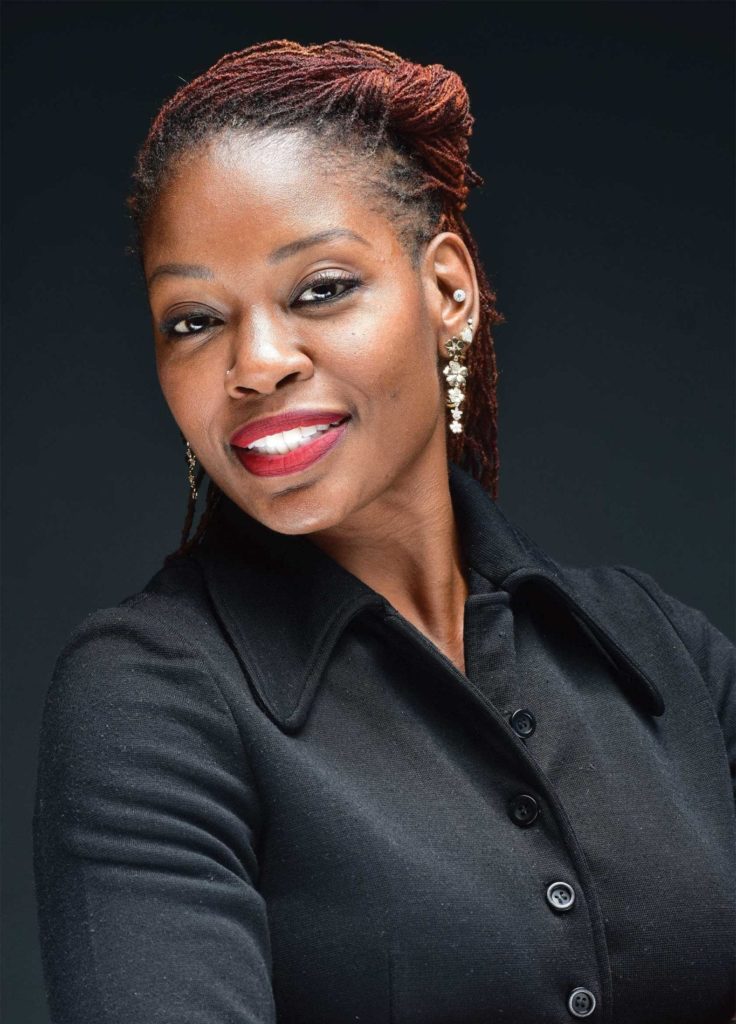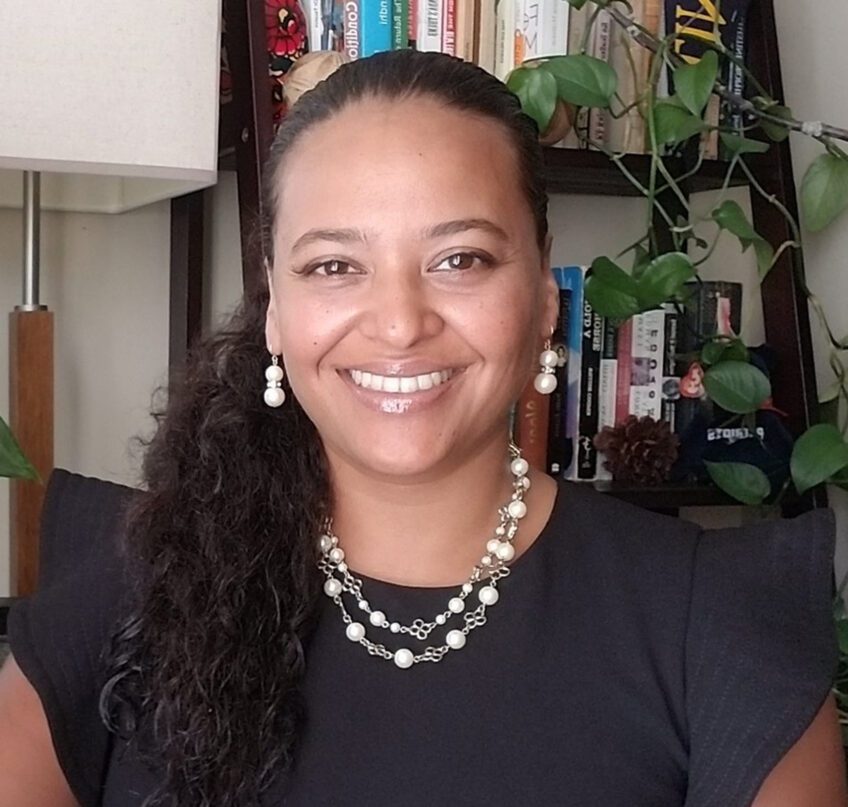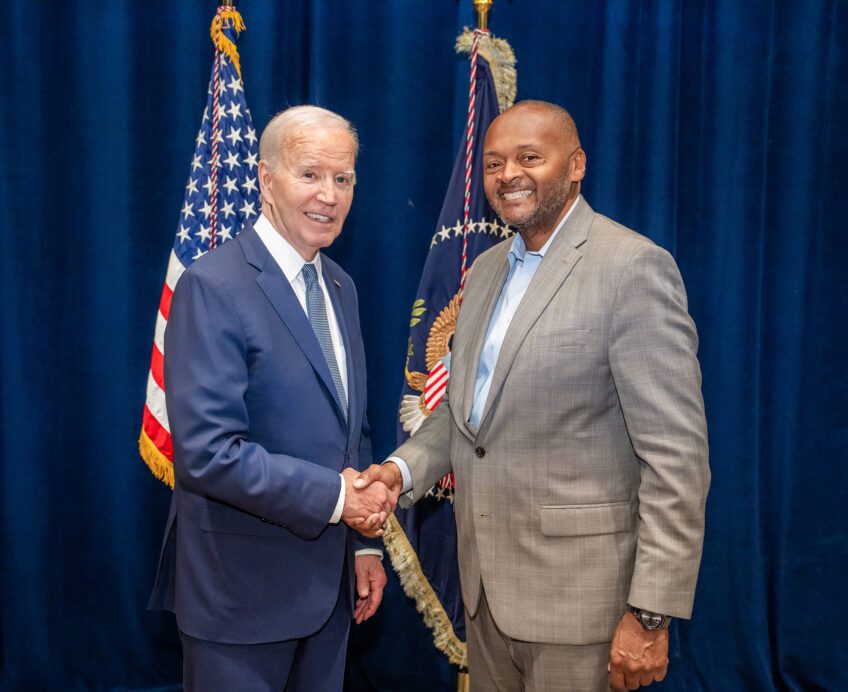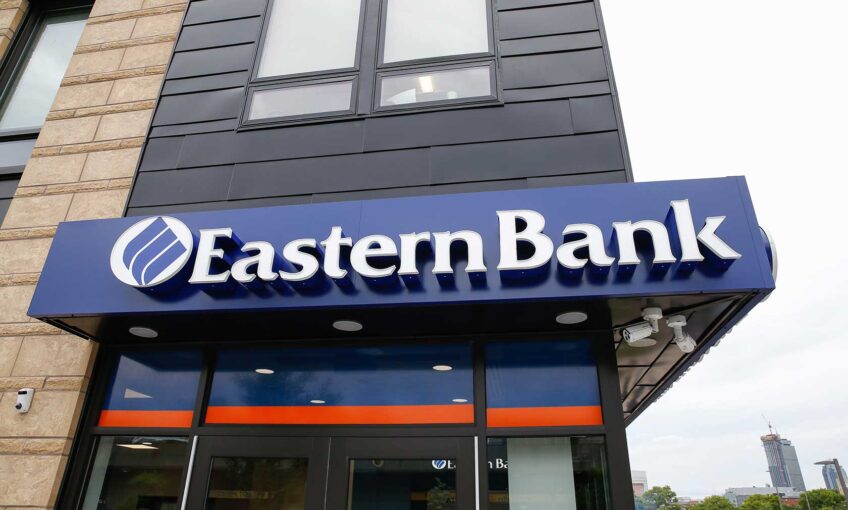
When Amenyonah Bossman launched Bossman Construction Management, she intentionally used her last name for the female-centered business.
“Working construction, a lot of people wouldn’t want to call me Bossman,” she said. “They would ask if they could call me ‘Boss lady’ or make up another name for me entirely. But I said no, it’s Bossman.”
Bossman learned early on how to stand up for herself as a woman in construction. She attended Benson Polytechnic High School in Portland, Oregon, and had her sights set on a career in construction by age 13.
“I learned early, you’re going to have white boys in your class that are going to want to take the work from you,” Bossman said. “On group projects, they’ll say ‘You take the notes, I’ll cut the wood,’ so I learned early on and was able to advocate for myself.”
The stepdaughter of a “master-of-all-trades” carpenter, she fell in love with construction when her stepfather, Abdul Majid, gave her a plastering job to do on one of his sites.
“He gave me this room and said, ‘This is what you need to do.’ He told me, ‘This is called a knockdown brocade,’” Bossman said. “The good thing about my stepdad is, he was not a micromanager. You get a lesson and you have to get it right. So I was plastering, and I was so in the zone, and I realized, ‘Oh my God, I could do this for free! This is a piece of cake! And its enjoyable!’ I transformed a plain room into a beautifully brocaded room. So that’s when I knew, that’s it, that’s what I want to do.”
Her stepfather encouraged her to pursue construction, and she planned to graduate from Benson, come back to Boston, join a union, go to Wentworth, and work at a construction company. And that’s exactly what she did.
She started out at Suffolk Construction Company and Shawmut Design and Construction, but found she was almost always on all-white, male-teams.
“I found little support in all the years I was in the industry and was more breaking down barriers and paving the way than benefitting from any African American women already at Suffolk, because it was not diverse,” Bossman said.
And the lack of support and awareness didn’t stop at the doors of Suffolk.
“It’s also your subcontractors that get on the site and are perplexed that they’re answering to a black woman,” Bossman said. “At one point, someone assumed the safety officer onsite was in charge over me, because they couldn’t believe I would be in charge of the site.”
So when Bossman decided to launch her own company, she knew she had to promote and uplift other women in construction. She reached out to women contractors, encouraged more women on the job site, and has taken on mostly female clients.
“There’s still so much to learn,” Bossman said. “Being a business owner is a whole different ballgame. It’s like starting out as a new kid on the block again, and that’s a humbling thing to start from the beginning.”
The entrepreneur kickstarted her business with a personal investment of over $50,000 and worked with Jamaica Plain Neighborhood Development Corporation to create her business plan.
Luckily, the COVID-19 pandemic has not affected Bossman Construction the way it has many other businesses. Bossman began launching her company last May and opened her doors this past April, right in the middle of the COVID-19 outbreak. But almost immediately, she got her first client, and in July she signed her first big contract for over $130,000.
“It’s been client after client. I haven’t even done any advertising yet. It’s crazy,” Bossman said. “Just today I did a walkthrough. I got three clients last week and actually had to turn someone else down. So COVID-19 impacted me at the beginning, but now business has picked up so much I keep asking, how did you get my number?”
A Minority Women Business Enterprise (MWBE) certification has also sent clientele her way.
“It helps with outreach,” Bossman said. “I have had some corporations reach out because of my certification, companies I otherwise wouldn’t have been able to connect with.” Companies and developers are incentivized to find MWBE partners in order to access federal and state funding reserved for minority-owned businesses.
Looking forward, Bossman is focused on building out her team. But she is taking her time.
“I have to see your work and character before I’m comfortable inviting you onto the team,” she said.
One project she is in the midst of is Kimya’s House, a women’s transitional housing and re-entry program.
“That’s what I love about the job — I get the opportunity to help people see their visions to fruition and help them improve the community,” Bossman said. “That’s much more satisfying than big development projects that are just about money. Being able to improve lives, that’s what I meant when I said I could do this for free.”






